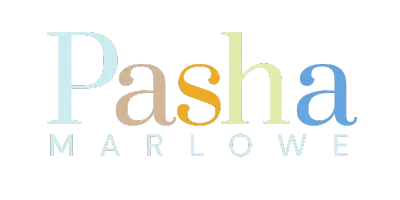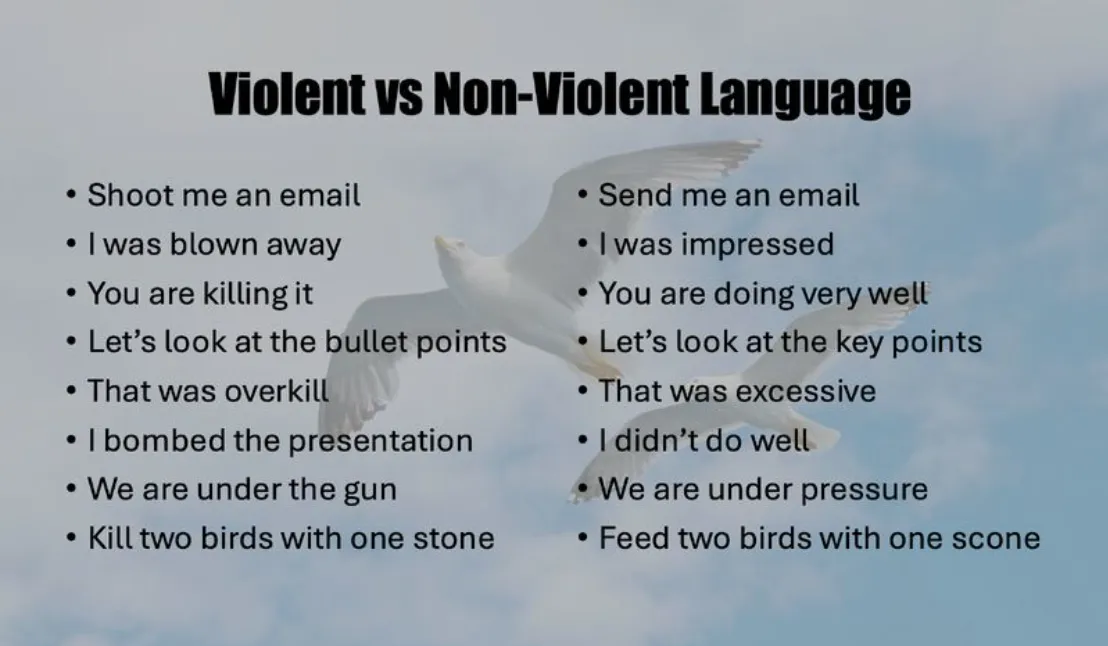

Inclusion through trauma-informed, non-violent language.
As a therapist, coach, and speaker, I am always stunned by how many people I work with have experienced trauma, specifically violent trauma. When I talk about being trauma-informed and trauma-responsive in our homes and work spaces, I remind people how important non-violent language is.
Some people will look at this list of common phrases and think "That's just the way people talk. It doesn't mean anything".
Others will see this list or hear these phrases and think of their own trauma or a loved one who died by gun violence, for example. You would be shocked to know how many people know and love someone who was murdered.
The thing is, when someone says "shoot me an email", I may not say "I'd rather you not say that because it triggers me", but I will think about my brother in law who was the victim of gun violence. And that memory and reaction will distract me from the conversation or task and make me feel less safe-more some days than others.
Non-violent language has a cumulative effect. People don't leave groups or workplaces because someone says "you killed that presentation!" once or twice, but they do leave if there is a consistency of violent or non-inclusive language over time.
Some people are visual learners and they SEE what you say. You say "I bombed that presentation" and they see you blown up. Words are powerful.
Is it "just the way people talk"-often. Is it "just a habit"-probably.
Can we change the way we talk with awareness so more people have a safe and equitable opportunity to thrive-absolutely.
I'd love to hear your thoughts. What else would you add to this list?
If your organization could benefit from a keynote or workshop on trauma-informed workplaces, mental health, and inclusion, please reach out.
These concepts and more are featured in my keynotes and trainings on neurodiversity, as well as in my recent book "Creating Cultures of Neuroinclusion: A Framework for Peopling and Supporting Neurodiverse Talent".
Copyright 2025. Pasha Marlowe. All Rights Reserved




